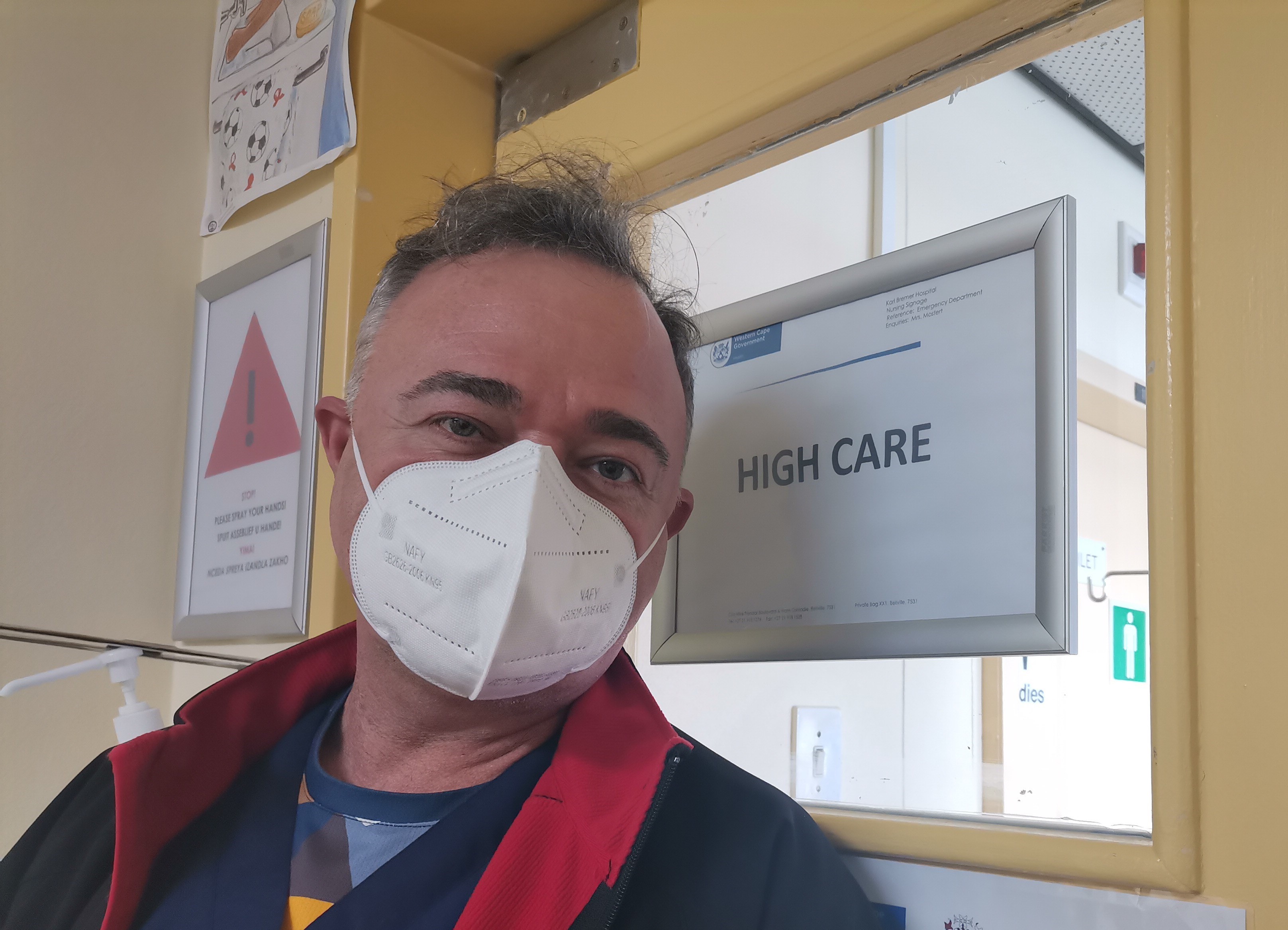News
Don't ignore the signs, you’re never too young to have a stroke
A stroke can happen to anyone at any time and it’s much more prevalent in youth than we think, says Dr Basson De Vries, the head of internal medicine at Karl Bremer Hospital.

According to the Heart and Stroke Foundation, at least 240 people in South Africa will suffer a stroke, of which 70 people will lose their lives every day.
“Stroke in youth is much more common than we think, especially with our obesity rates in the country. Add hypertension to that, which often goes undiagnosed, or smoking and alcohol abuse, as risk factors. It is a reality, and we need to be aware of the risks of stroke in youth and older adults.”
What is stroke and risk factors
The World Health Organisation defines stroke as the brain equivalent of a heart attack. Blood must flow to and through the brain for it to function. If its flow is obstructed, by a blood clot moving to the brain, or by narrowing or bursting of blood vessels, the brain loses its energy supply, causing damage to tissues leading to stroke.
There are different types of strokes and they affect the brain differently and will be treated differently.
There are several risk factors, such as lifestyle choices, that can lead to someone experiencing a stroke.
Dr Basson shared the following risks:
- A lack of exercise: “Do your best to keep your body moving and to exercise regularly every week.”
- Obesity: “Consult your local nurse or doctor to seek support if you are overweight.”
- Excessive alcohol use: “More than two drinks per day raises your blood pressure. Binge drinking can lead to stroke.”
- Illegal drugs: “IV (intravenous) drug abuse carries a high risk of stroke from blood clots (cerebral embolisms). Cocaine and other drugs have been closely linked to strokes, heart attacks, and many other cardiovascular problems.”
- Smoking. “Smoking almost doubles your risk for an ischemic stroke.”
Other factors include high blood pressure, heart disease, diabetes. “People with diabetes are at greater risk for a stroke than someone without diabetes,” explains Dr Basson.
He shares that people who have experienced TIAs (transient ischemic attacks) or “mini strokes” are also at risk. “They have the same symptoms as stroke, but the symptoms don’t last. If you have had one or more TIAs, you are almost 10 times more likely to have a stroke than someone of the same age and sex who has not had a TIA.”
Genetics, a high red blood cell count and cardiac structural abnormalities could also raise your risk for stroke.
While this may sound scary, Dr Basson says awareness and a healthy lifestyle are key in stroke prevention in people of all ages.
“Imagine yourself not able to talk or use half of your body, not able to dress yourself or do the sport you love for the rest of your life, that is what a stroke can do to you within minutes or hours. You need to look after yourself: avoid being inactive and choose to have an active and healthy lifestyle; go for regular walks. It can happen to anybody at any time Rather be safe than sorry and take control of your life. Go for regular health checks.”
What are the signs of stroke
“The FAST acronym is best to use to be aware of a possible stroke and you should always seek help immediately,” shares Dr Basson.
The Heart and Stroke Foundation uses the following guide:
F – Face dropping: This refers to drooping or numbness on one side of the face versus the other.
A – Arm weakness: An individual may experience arm weakness in one arm or one arm may be more numb than the other.
S – Speech difficulty: Watch for changes in speech including slurring or the inability to respond properly.
T – Time to seek emergency support: Try to remember when your symptoms began and seek emergency support immediate. Medical help is most important within the first few hours after a stroke
Other commons signs of stroke include: Sudden confusion, sudden loss of vision, sudden severe headache and sudden dizziness.
Life after stroke
Recovering from a stroke may be challenging but rehabilitation will be an important part of the process. A stroke can affect movement, the senses, feeding, emotions, other body functions and energy levels. Rehabilitation will help you to cope with any physical problems that you may have developed as a result of the stroke.
Healthcare workers will support you on your rehabilitation journey. Western Cape Government Health offers in-patient support (a patient who stays in hospital while receiving treatment) and out-patient support (a patient who receives treatment without staying overnight). In addition, healthcare workers will create a rehabilitation plan to help you adapt.
Stroke prevention and support
Healthy lifestyle choices can help to prevent a stroke, adds Dr Basson. Healthy living includes a healthy diet, healthy weight, physical activity, cutting out smoking and limited alcohol use.
If you require support, you can check the Western Cape directory for patient support for the contact details of other organisations in your area that will be able to help you at https://www.heartfoundation.co.za/stroke-support-directory.
Remember, if you have an emergency, visit your nearest clinic or hospital for support.


